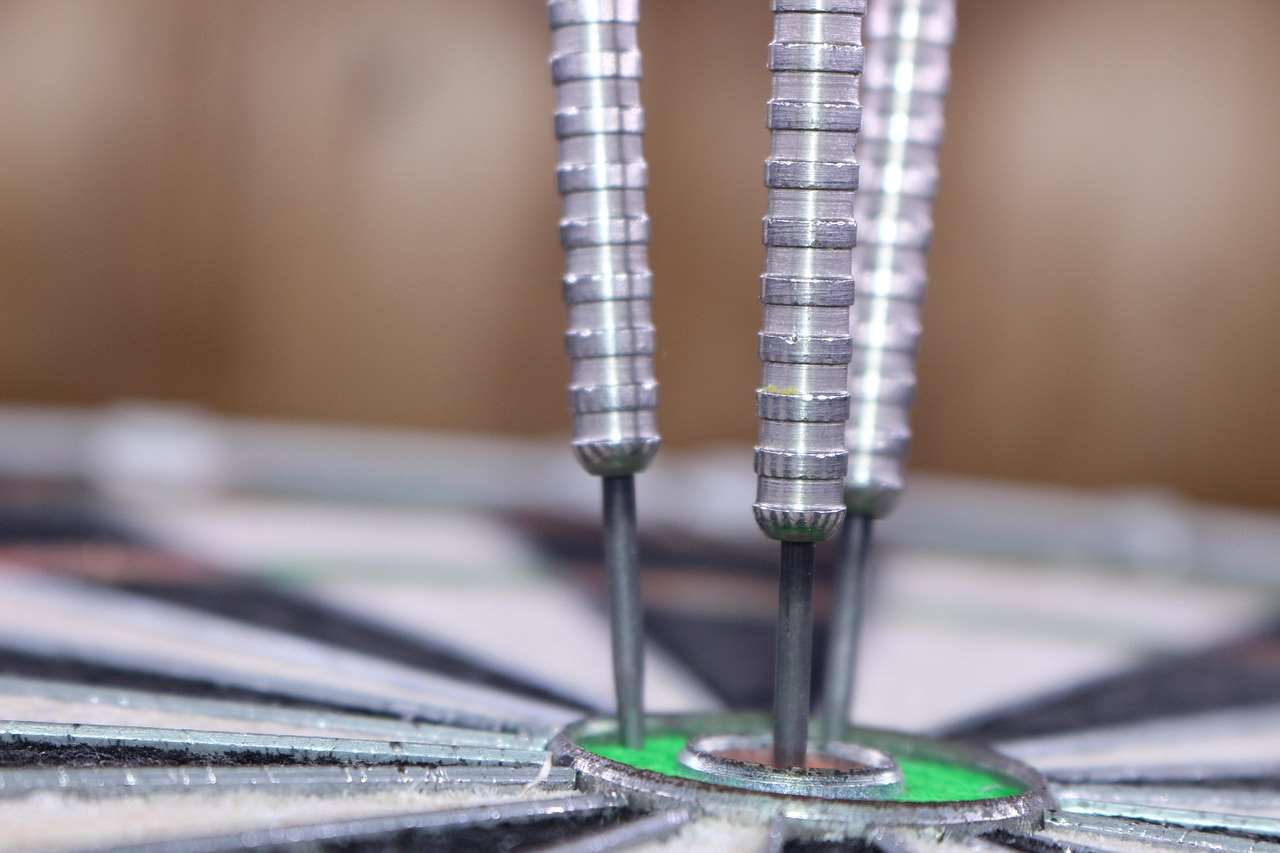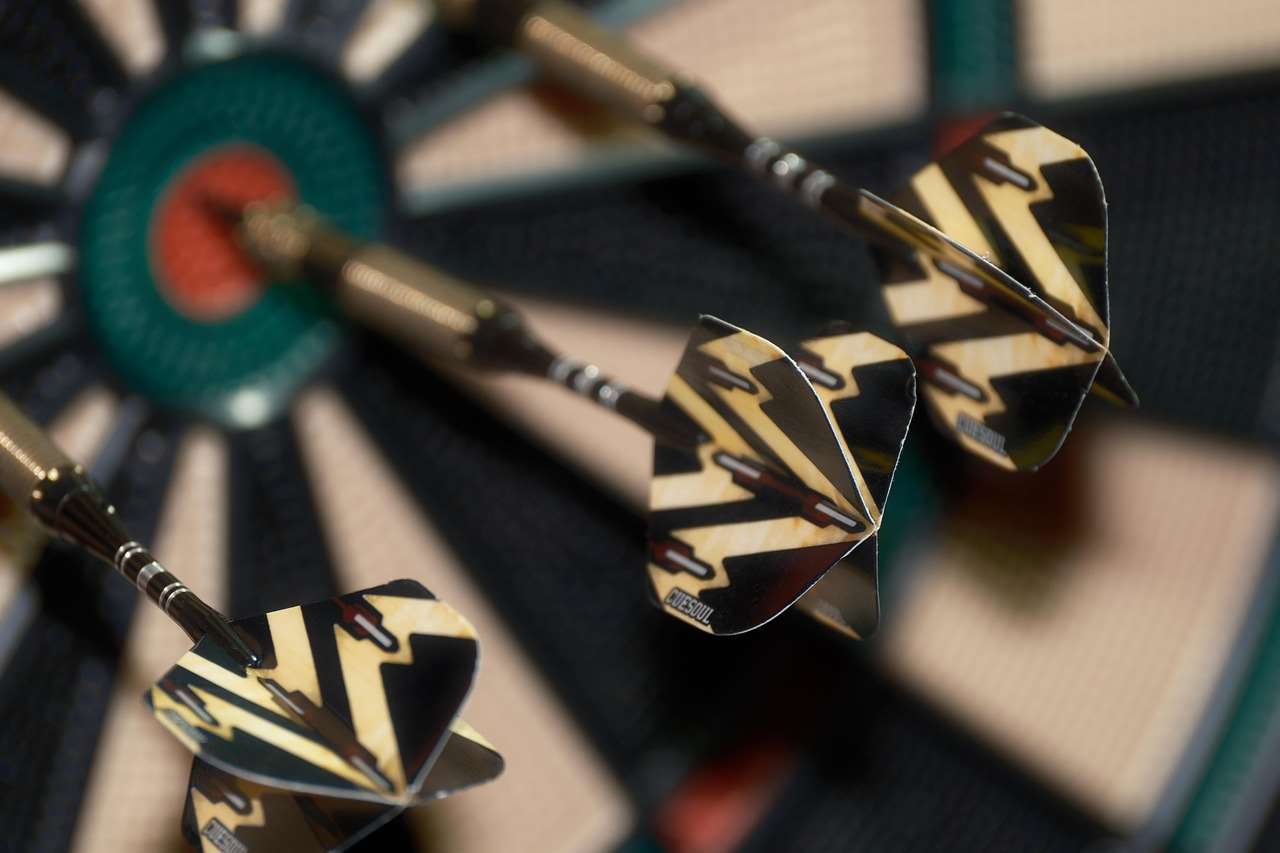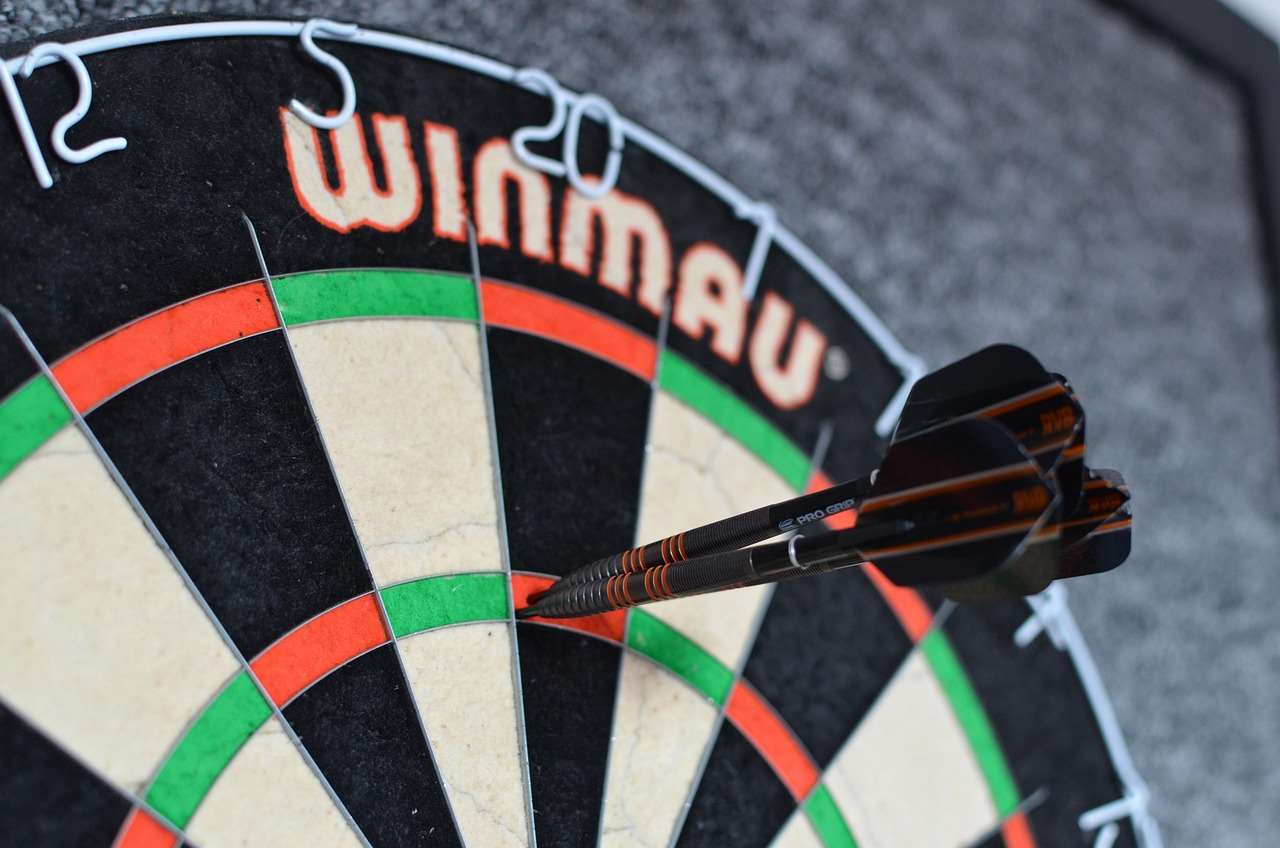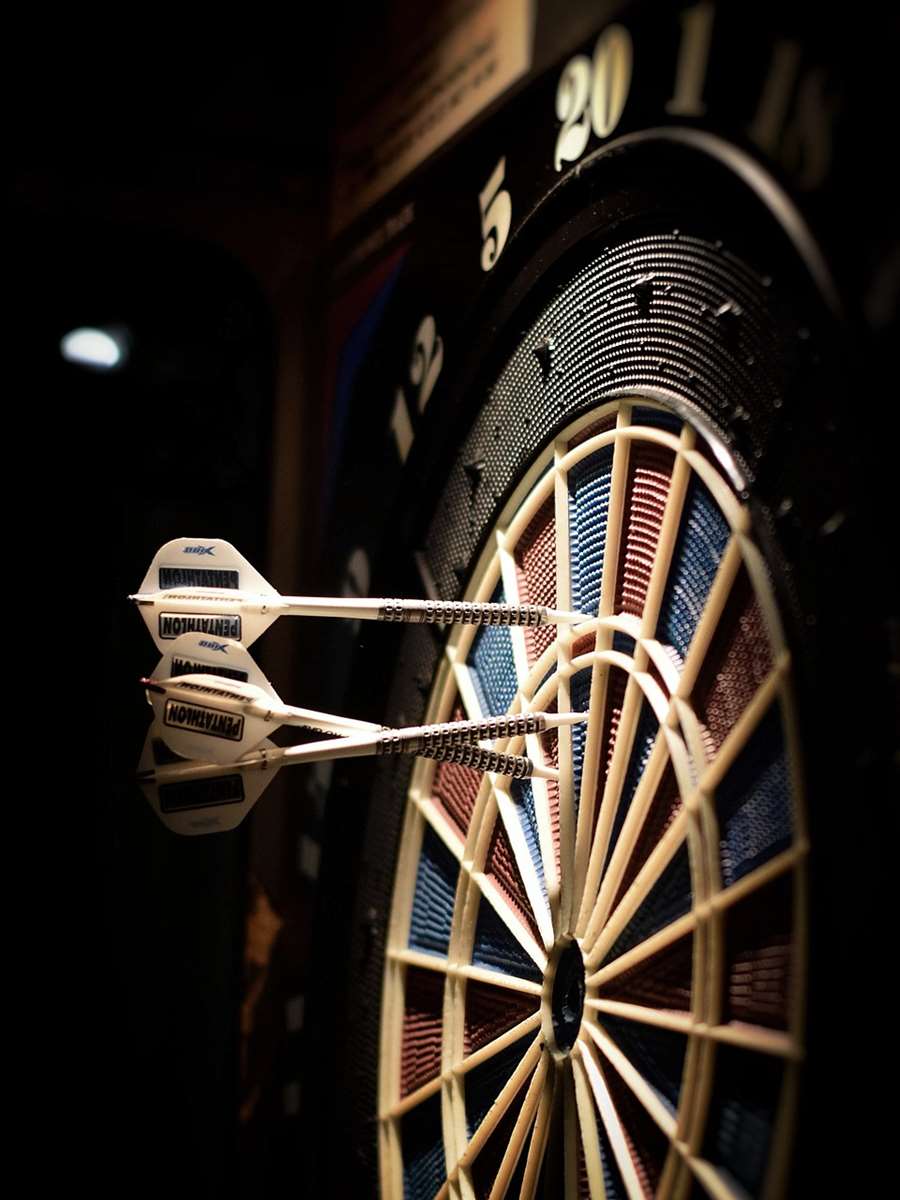It’s true: fun games improve dart calculation, turning practice into playful learning! This article explores a variety of engaging dart games designed to sharpen your mental math, enhance your strategic thinking, and elevate your overall dart-playing prowess.
⚠️ Still Using Pen & Paper (or a Chalkboard)?! ⚠️
Step into the future! The Dart Counter App handles all the scoring, suggests checkouts, and tracks your stats automatically. It's easier than you think!
Try the Smart Dart Counter App FREE!Ready for an upgrade? Click above!
Why Fun Games Improve Dart Calculation Skills
Traditional dart practice often involves repetitive drills aimed at hitting specific numbers. While this can improve accuracy, it can also become monotonous. Integrating fun dart games transforms practice into an enjoyable activity, making players more motivated to engage and, crucially, more receptive to learning. When you’re having fun, you’re less likely to become frustrated and more likely to focus on the calculations involved in each throw. Playing darts variants fun games offers a dynamic method for developing numerical skills without the pressure of a serious match.

The benefits extend beyond simple arithmetic. These games often require strategic planning, forcing players to consider multiple outcomes and calculate the best course of action. This, in turn, hones your ability to think critically and make quick decisions under pressure – skills that are invaluable in any dart game. Using old dart games rules can bring a new and challenging way to sharpen your math skills!
The Psychological Edge of Playful Learning
The psychological impact of fun games improving dart calculation cannot be overstated. The element of play reduces anxiety and allows players to experiment more freely. Fear of failure diminishes, encouraging risk-taking and creative problem-solving. This positive environment fosters a growth mindset, where challenges are seen as opportunities for improvement rather than threats to self-esteem.
Specific Dart Games to Enhance Calculation
Here are several dart games designed to specifically improve your dart calculation abilities. These games vary in complexity, catering to different skill levels and preferences. Each game presents unique challenges that require players to constantly calculate scores, plan strategies, and adapt to changing circumstances.
Around the Clock (or Round the Board)
This classic game involves hitting each number on the dartboard in sequential order, from 1 to 20. While seemingly simple, it demands precision and accurate calculation, especially under pressure. Variations include hitting doubles or trebles as you progress, further increasing the difficulty and demanding more complex mental math.
Cricket
Cricket is a strategic game that requires players to “close out” numbers (20, 19, 18, 17, 16, 15, and bulls-eye) by hitting each number three times before their opponent does. Players must also score points on open numbers, making precise dart calculation essential for maximizing their score and preventing their opponent from scoring. It provides an excellent opportunity to practice addition, subtraction, and strategic thinking.
Killer
In Killer, each player selects a number as their own. To become a “killer,” they must hit their number twice. Once a killer, they can target other players’ numbers to eliminate them. This game involves constant calculation to determine the best targets and strategies for both offense and defense. Strategic thinking and accurate scorekeeping are crucial for success.

Shanghai
Shanghai requires players to hit the numbers 1 through 7 (or another sequence) in order, aiming for a single, double, and treble in each round. The game emphasizes accuracy and quick calculation, as players must determine the most efficient way to score the required hits. A player can win instantly by achieving a “Shanghai” – hitting a single, double, and treble of the same number in one round.
Halve It
Halve It is a challenging game that tests both accuracy and dart calculation skills. Players choose a series of numbers (e.g., 20, 19, double 10, treble 7, bullseye) and must hit each number in a specific number of darts. If they fail, their score is halved. This game requires players to carefully calculate their remaining score and adjust their strategy accordingly. The risk of losing half your points with a missed throw adds an element of excitement and pressure, further enhancing mental focus.
Tips for Maximizing Calculation Improvement
To truly benefit from these fun games and improve dart calculation, consider these tips:
- Focus on Mental Math: Resist the urge to use a calculator or pen and paper. The goal is to train your brain to perform calculations quickly and accurately.
- Visualize Your Throws: Before each throw, visualize the trajectory of the dart and the desired landing point. This mental imagery can improve your accuracy and enhance your understanding of the geometry involved.
- Practice Regularly: Consistency is key. Even short, regular practice sessions can yield significant improvements over time.
- Track Your Progress: Keep a record of your scores and performance in each game. This allows you to identify your strengths and weaknesses and track your progress over time.
- Vary Your Games: Don’t stick to the same game all the time. Experiment with different games to challenge your brain in new ways and prevent boredom.
Beyond the Numbers: Strategic Thinking and Decision-Making
While fun games improve dart calculation, they also enhance strategic thinking and decision-making skills. Games like Cricket and Killer require players to constantly assess the situation, anticipate their opponent’s moves, and develop a plan of action. This strategic element adds another layer of complexity and engagement, making the games even more enjoyable and beneficial.
Adapting to Different Game Rules
Learning to play different dart games means understanding various scoring systems and rulesets. For example, exploring some historical dart game variations shows you how the game has evolved! This adaptability translates well to real-world scenarios where you need to quickly grasp new concepts and adjust your approach accordingly. The challenge of mastering different rare dart game instructions also improves your problem-solving abilities.

The Importance of Opponent Analysis
In many dart games, understanding your opponent’s strengths and weaknesses is crucial for success. Observing their throwing style, analyzing their preferred numbers, and anticipating their strategies can give you a significant advantage. This element of opponent analysis further enhances your cognitive skills and strategic thinking abilities. Consider the challenge of playing some forgotten pub dart games with complex rules which require careful player observation to exploit weaknesses.
Resources for Learning New Dart Games
There are numerous resources available for learning new dart games and improving your dart calculation skills. Online dart forums, websites, and mobile apps offer a wealth of information, including game rules, strategies, and practice drills. Joining a local dart league or club can also provide valuable opportunities to learn from experienced players and participate in organized competitions.
Online Dart Communities
Online dart communities are a great way to connect with other dart enthusiasts, share tips and strategies, and find new dart games to play. Many forums and websites offer detailed descriptions of various games, including rules, scoring systems, and variations. These communities can also provide valuable support and encouragement as you progress on your dart-playing journey. Delving into the history of darts games uk through online resources can also offer a greater appreciation for the sport.
Mobile Dart Apps
Several mobile apps are available that can help you improve your dart calculation skills and track your progress. These apps often include features such as scoring assistance, practice drills, and game simulations. Some apps even offer personalized feedback and coaching to help you identify your weaknesses and improve your throwing technique. Exploring some obscure dartboard games list via app could broaden your horizons, mathematically!

Embrace the Fun and Elevate Your Game
The key takeaway is that fun games improve dart calculation significantly. By incorporating these games into your practice routine, you can transform tedious drills into engaging and enjoyable activities. This not only enhances your mental math skills but also improves your strategic thinking, decision-making, and overall dart-playing prowess. Embrace the element of play, challenge yourself with new games, and watch your dart calculation skills soar. Understanding how dart games before 501 invented were played can also give you a deeper respect for the game.
Continuing Your Journey
Remember that learning and improvement are continuous processes. Regularly evaluate your performance, identify areas for improvement, and seek out new challenges. The more you engage with the game, the more you will learn and the more you will enjoy the process. Consider exploring some ancient dart throwing games to appreciate the sport’s rich heritage and maybe even discover new challenges. Plus, understanding the nuances of Victorian era dart games offers valuable insights into the game’s historical roots.

Conclusion: Darts and Deliberate Play
Ultimately, the best way to improve dart calculation is to make practice fun and engaging. By incorporating a variety of fun dart games into your routine, you’ll not only sharpen your mental math skills but also enhance your strategic thinking and decision-making abilities. Embrace the challenge, experiment with different games, and enjoy the journey of becoming a better dart player. Start exploring some of these games today and discover the power of playful learning! So grab your darts, gather some friends, and let the games begin!
Discover more exciting dart game variations today!
Hi, I’m Dieter, and I created Dartcounter (Dartcounterapp.com). My motivation wasn’t being a darts expert – quite the opposite! When I first started playing, I loved the game but found keeping accurate scores and tracking stats difficult and distracting.
I figured I couldn’t be the only one struggling with this. So, I decided to build a solution: an easy-to-use application that everyone, no matter their experience level, could use to manage scoring effortlessly.
My goal for Dartcounter was simple: let the app handle the numbers – the scoring, the averages, the stats, even checkout suggestions – so players could focus purely on their throw and enjoying the game. It began as a way to solve my own beginner’s problem, and I’m thrilled it has grown into a helpful tool for the wider darts community.